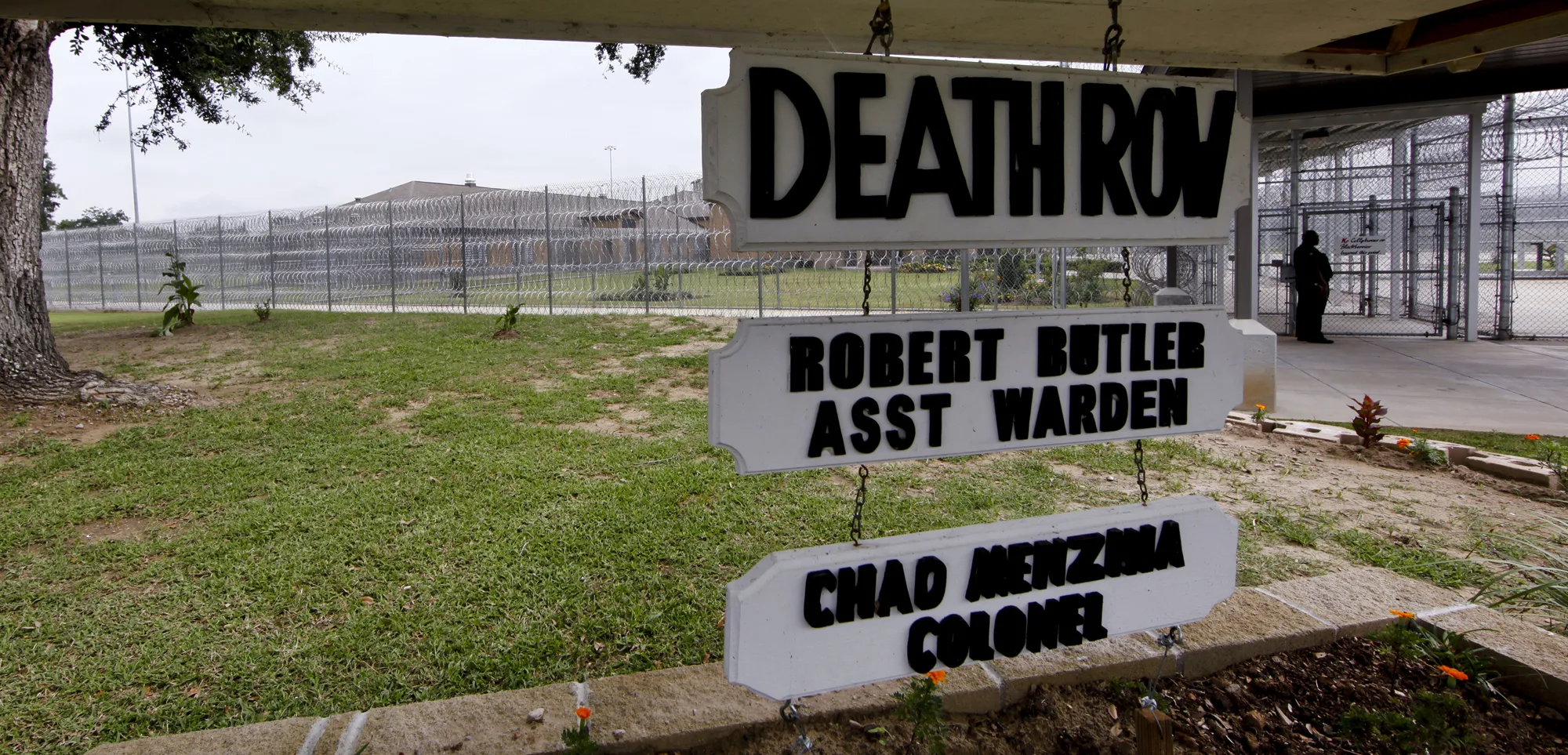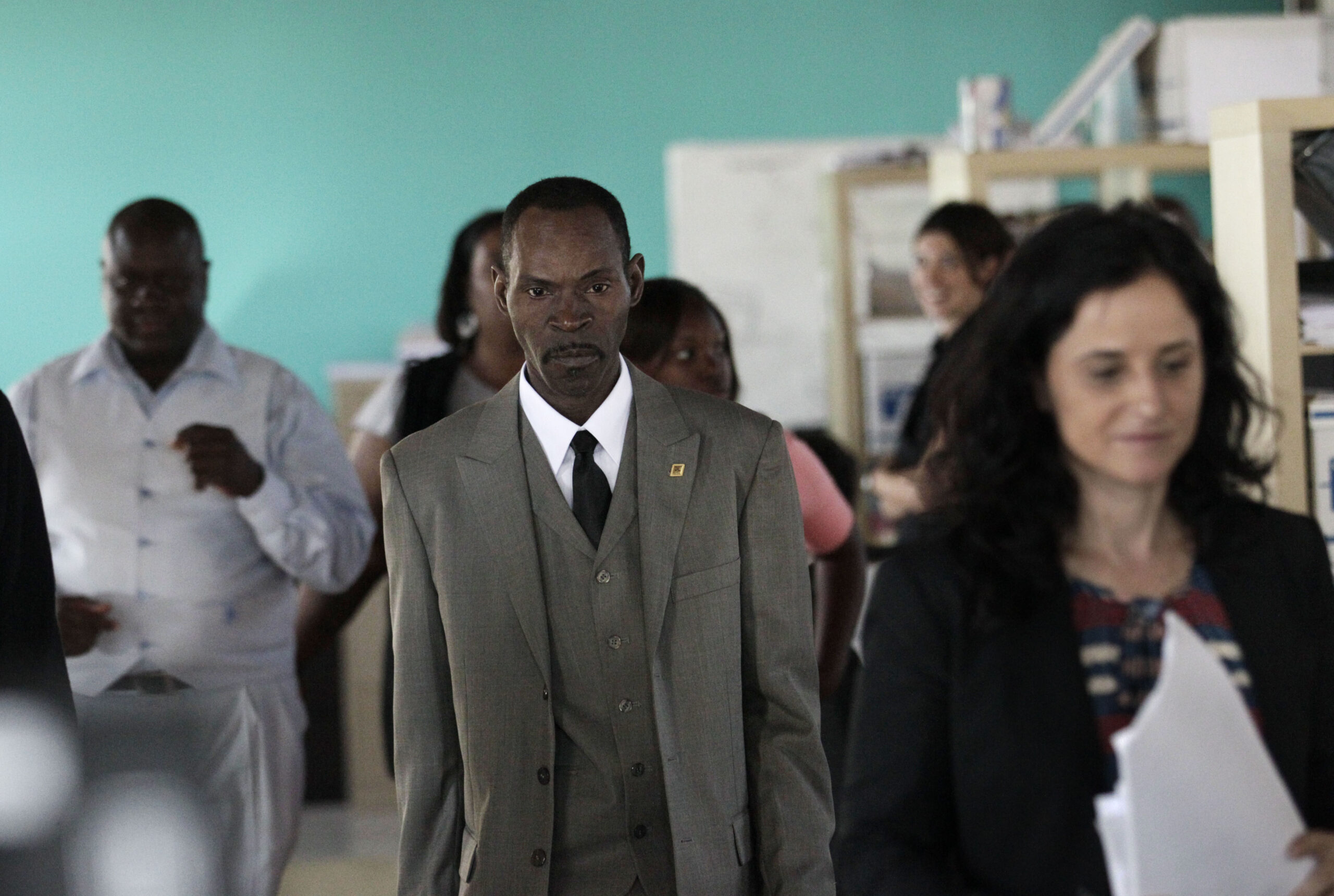9 Reasons Why the Historic Mass Clemency Effort in Louisiana May Save Innocent People From Execution
Louisiana residents should speak out before Gov. Edwards leaves office in January 2024.
Urgent 09.20.23 By Alicia Maule
Updated on Oct. 4: On Oct. 3, Louisiana Attorney General Jeff Landry unjustly blocked people on death row from having their cases reviewed for commutation, putting our client Jimmie “Chris” Duncan and other innocent people at risk of execution. Join us in calling on Gov. John Bel Edwards to direct the board of pardons to review clemency hearings before innocent people are executed.
Louisianans have a chance to prevent innocent people from being executed on death row. At least 190 innocent people have been exonerated from death row nationwide and 12 in Louisiana alone. There are currently 57 defendants on Louisiana’s death row, including Innocence Project client Jimmie “Chris” Duncan, who has maintained his innocence in the 1993 death of his girlfriend’s baby.
Gov. John Bel Edwards, who opposes the death penalty, has the authority to grant clemency to everyone on Louisiana’s death row. Attorneys for 55 of these defendants have requested modified sentences of life without parole. To avoid further injustice, residents of Louisiana must urge the Louisiana Parole Board to hold clemency hearings now and recommend clemency to the Governor so that the Governor can commute death sentences to life in prison before he leaves office in January 2024.
Here are key insights into Louisiana’s death row:
1. Twelve people have been exonerated from Louisiana’s death row.
Since 1973, 12 innocent individuals have been exonerated from Louisiana’s death row, including Ryan Matthews and Damon Thibodeaux, whose death sentences were overturned by DNA evidence with the help of the Innocence Project. These are 12 lives that could have been unjustly taken by the state. Every exoneration shines a light on the flaws inherent in the system, and the pressing need for a reevaluation of the sentences of those on death row. We’ll never know how many of the 28 people executed in the state’s history were innocent.
2. Louisiana has a startling ratio of getting it wrong — for every seven executions, three innocent people have been exonerated.
For every seven executions carried out in Louisiana since 1972, three innocent people have been exonerated. The irreversible nature of the death penalty leaves no room for error. Yet, this statistic reveals a dangerous margin of potential mistake. Gov. Edwards should commute the death sentences of people on death row to prevent further injustices.
3. Ninety-five percent of Louisiana death sentences have been reversed.
An astounding 95% of Louisiana death sentences have been reversed since 1999, according to the Capital Appeals Project. Such a high percentage of reversals shows systemic flaws and indicates that many of the original sentences should not have been death sentences in the first place.
4. Innocence Project client Jimmie “Chris” Duncan, who was convicted based on discredited bite mark evidence, has maintained his innocence on Louisiana’s death row since 1993.
In 1993, Mr. Duncan was bathing his girlfriend’s daughter when he stepped away briefly and returned to find the 23-month-old unconscious. He tried to perform CPR, took her to a neighbor’s house for help, and called the paramedics. But they were unable to resuscitate her. An autopsy conducted by now disgraced pathologist Steve Hayne and dentist Michael West supposedly determined that the toddler had been sexually abused and Mr. Duncan had bitten her. In 1998, Mr. Duncan was sentenced to death, but has always maintained his innocence.
In late 2022, Innocence Project attorneys joined pro bono counsel for Mr. Duncan in filing a motion to overturn his conviction based on the discredited forensics used against him. In 1994, Dr. West became the first member of the American Board of Forensic Odontology ever to be suspended from the organization. And Mississippi, where Dr. Hayne was the de facto medical examiner, cut ties with Dr. Hayne after the Innocence Project conducted an investigation into his flawed forensic practices. Nearly a quarter of people exonerated since 1989 were wrongfully convicted based on false or misleading forensic evidence, such as bite marks. If the governor acts, Mr. Duncan would be removed from death row.
5. The last execution occurred in 2010.
While not officially halting the death penalty, Louisiana carried out its last contested execution in 2002, more than two decades ago, and the state only executed once more in 2010, when a person on death row dropped all appeals. This suggests a societal and systemic shift away from the death penalty, emphasizing the need to reconsider its continued use.
6. Seventy-four percent of individuals on Louisiana’s death row are people of color.
A striking 74% of individuals on Louisiana’s death row right now are people of color, with 67% of them who are Black. Additionally, nine of Louisiana’s 12 death row exonerees are Black. And of the nine people exonerated since 1999, seven were wrongly convicted of killing white victims.
These exonerations highlight the racial dynamics of Louisiana’s death penalty, in which Black defendants and crimes involving white victims are overrepresented.
7. No white person has been executed in Louisiana for a crime against a Black victim since 1752.
There’s a glaring disparity in sentencing. Death sentences are six times more likely when the victim is white than when they are Black. Such a distinction points to deep-seated racial biases within the system. No white person has been executed in Louisiana for a crime against a Black victim since 1752. This stark fact emphasizes the systemic inequalities that have been perpetuated for centuries.
8. Nearly half of the people on Louisiana’s death row live with an intellectual disability.
It is unconstitutional to execute a person with an intellectual disability yet 40% (23) of the people on Louisiana’s death row have a documented intellectual disability, according to the Capital Appeals Project. Nineteen of these prisoners are Black and four are white.
9. Louisianans can speak out to urge Gov. Edwards to commute death row sentences before he leaves office in January 2024.
This Wrongful Conviction Day (Oct. 2), Innocence Project New Orleans is hosting a rally at the Orleans Parish Criminal District Court urging justice for all defendants on death row. If you’re in the area, you should attend. Sign this petition to show your support against executing people on death row and share it with others who live in Louisiana.
Right now, Louisiana has a historic opportunity to rectify potential miscarriages of justice. The clock is ticking, and the power of the community can play a decisive role.
This post was written in collaboration with the Innocence Project New Orleans and Capital Appeals Project.


Leave a Reply
Thank you for visiting us. You can learn more about how we consider cases here. Please avoid sharing any personal information in the comments below and join us in making this a hate-speech free and safe space for everyone.